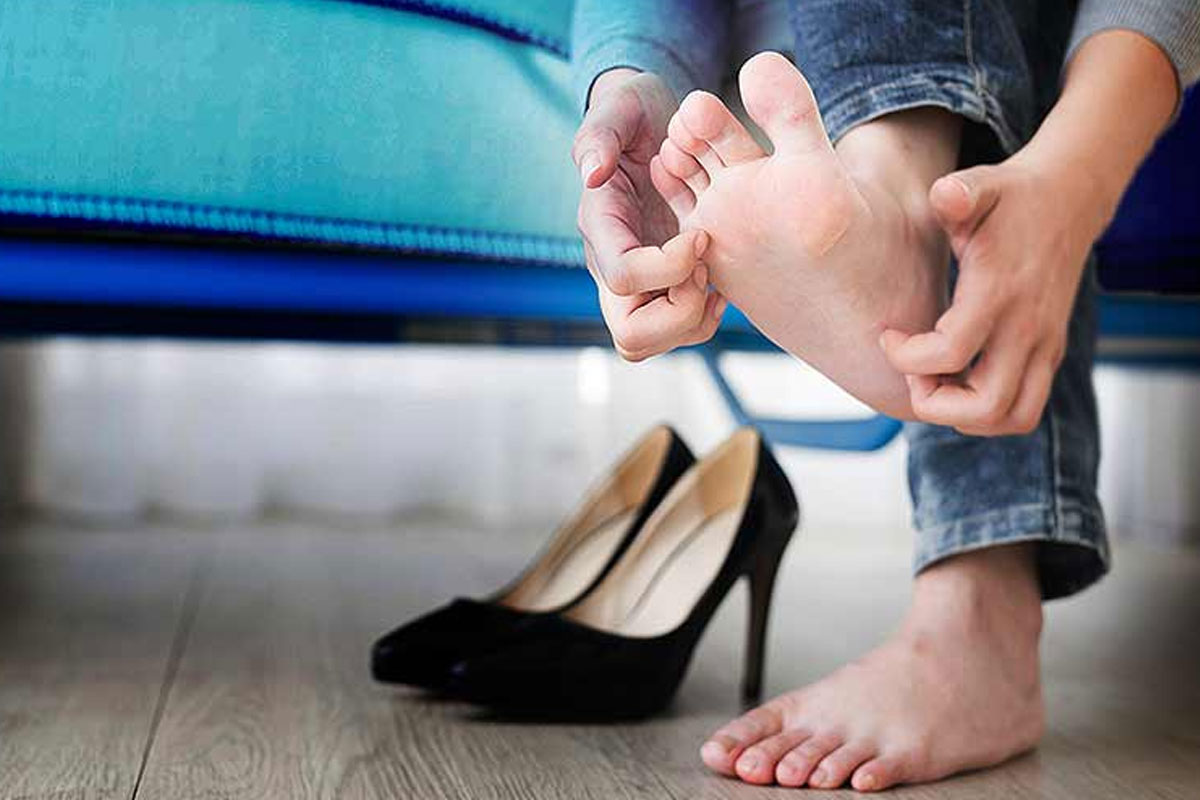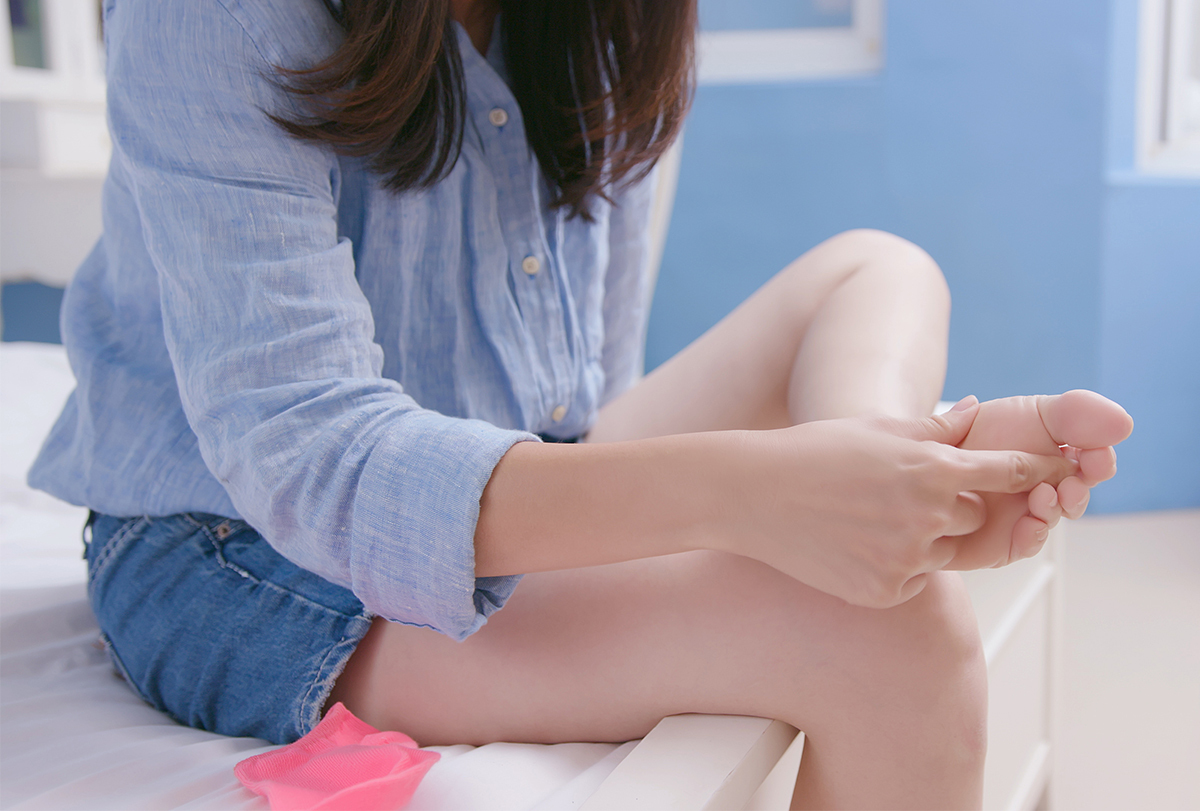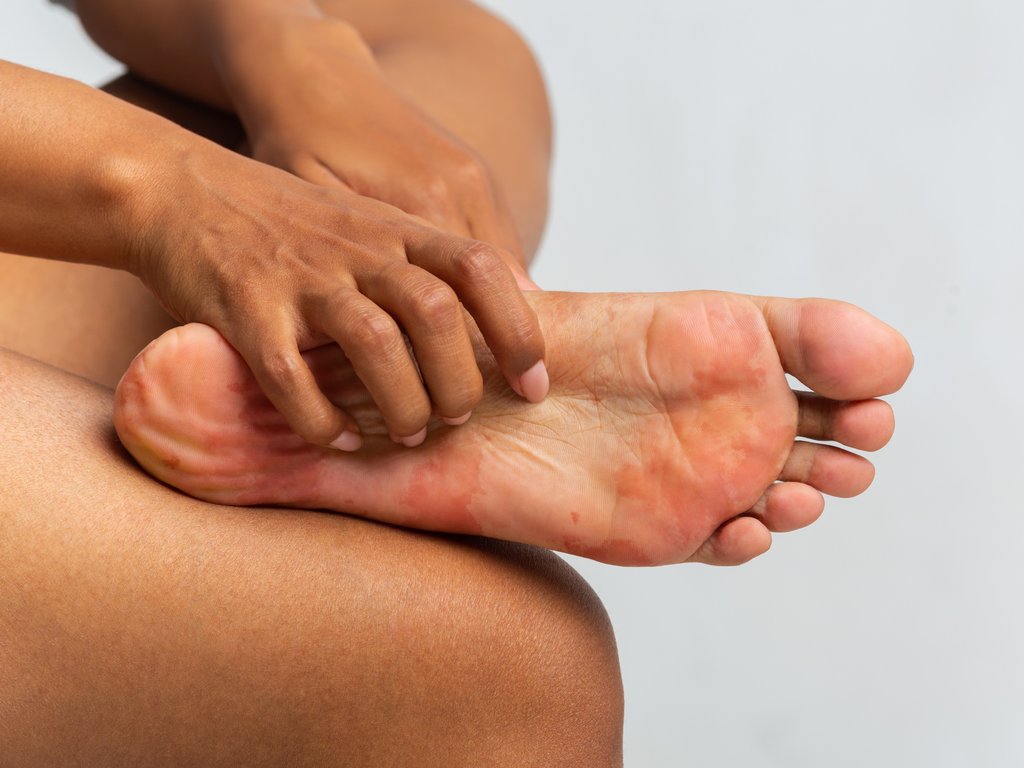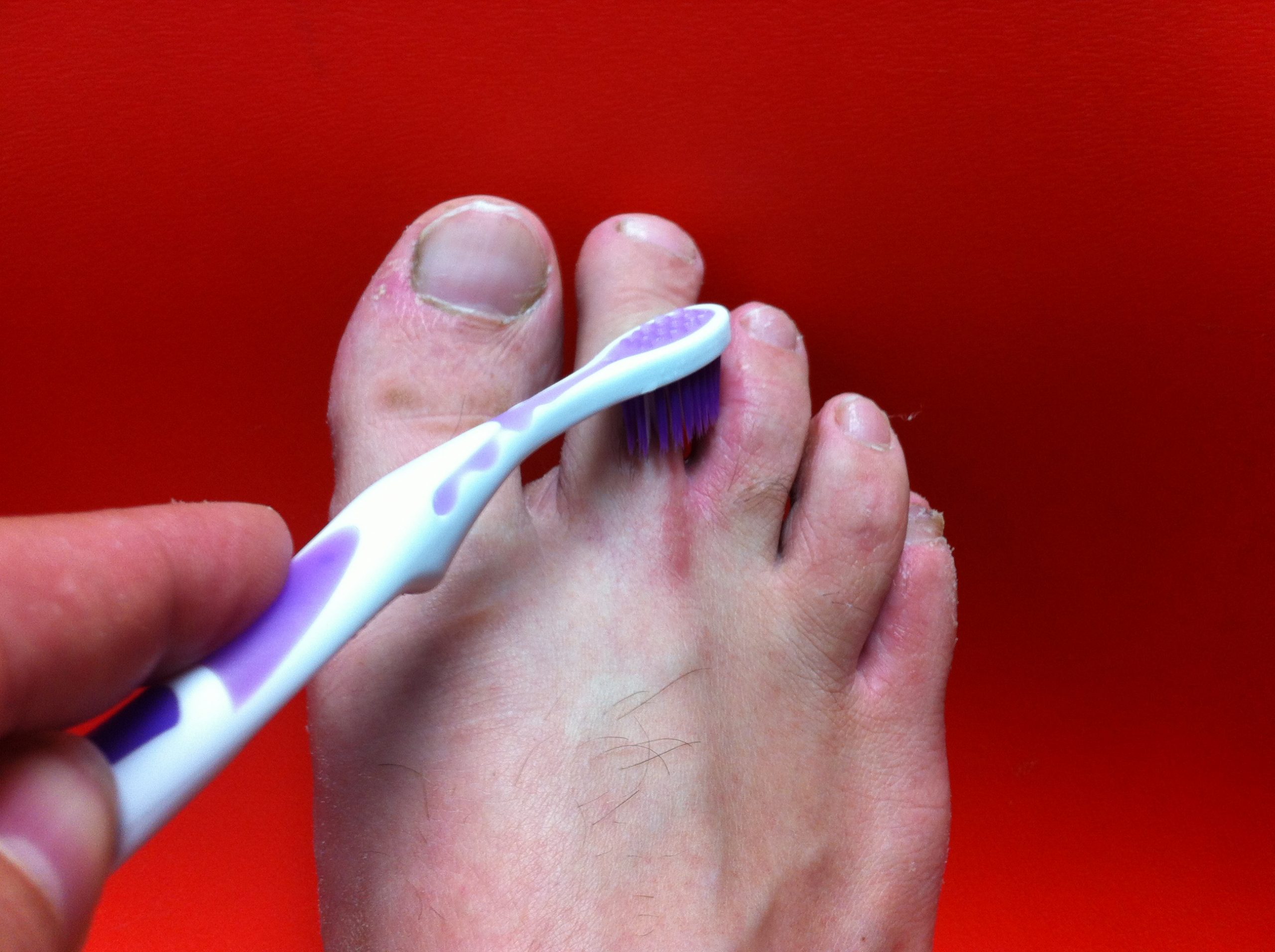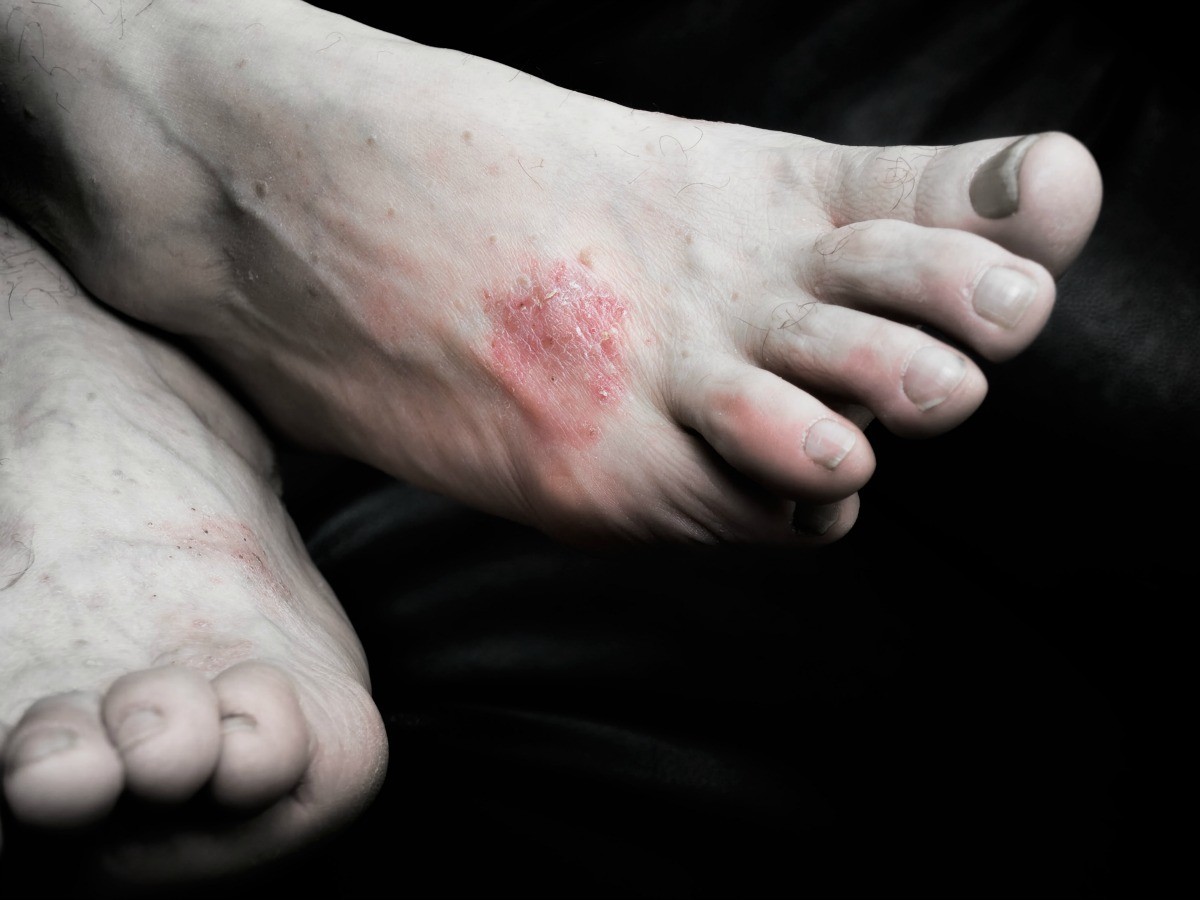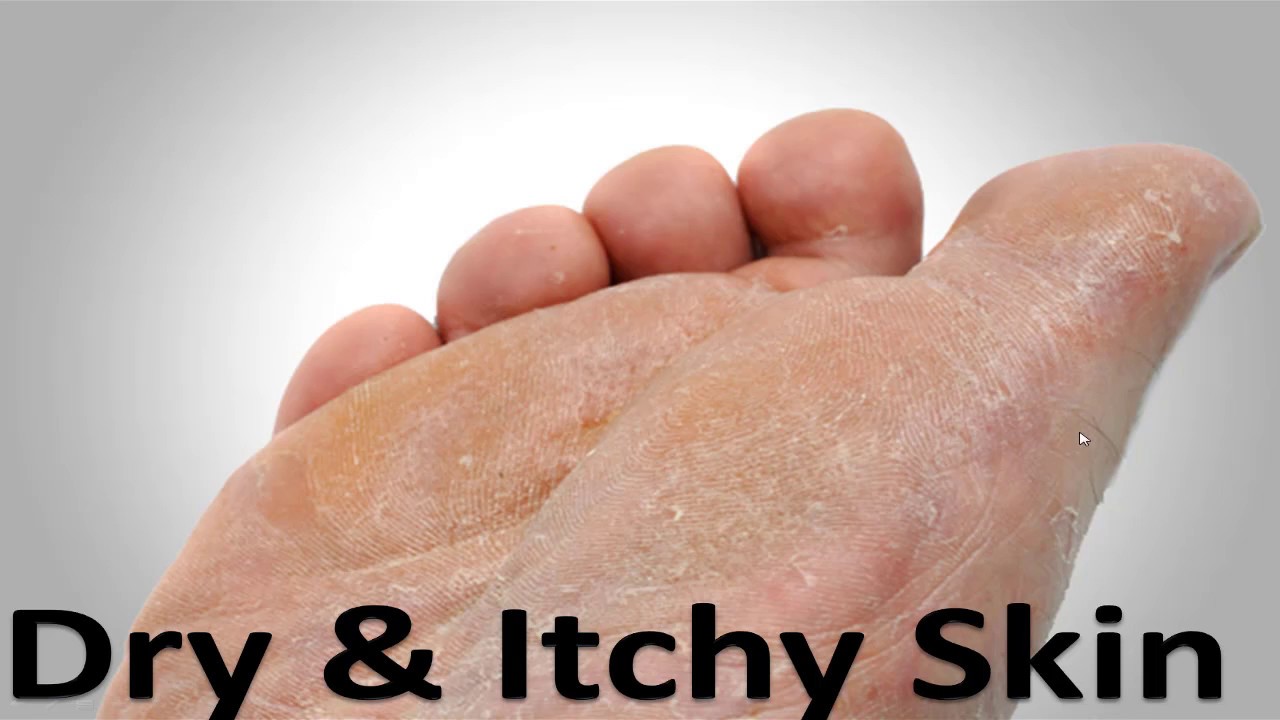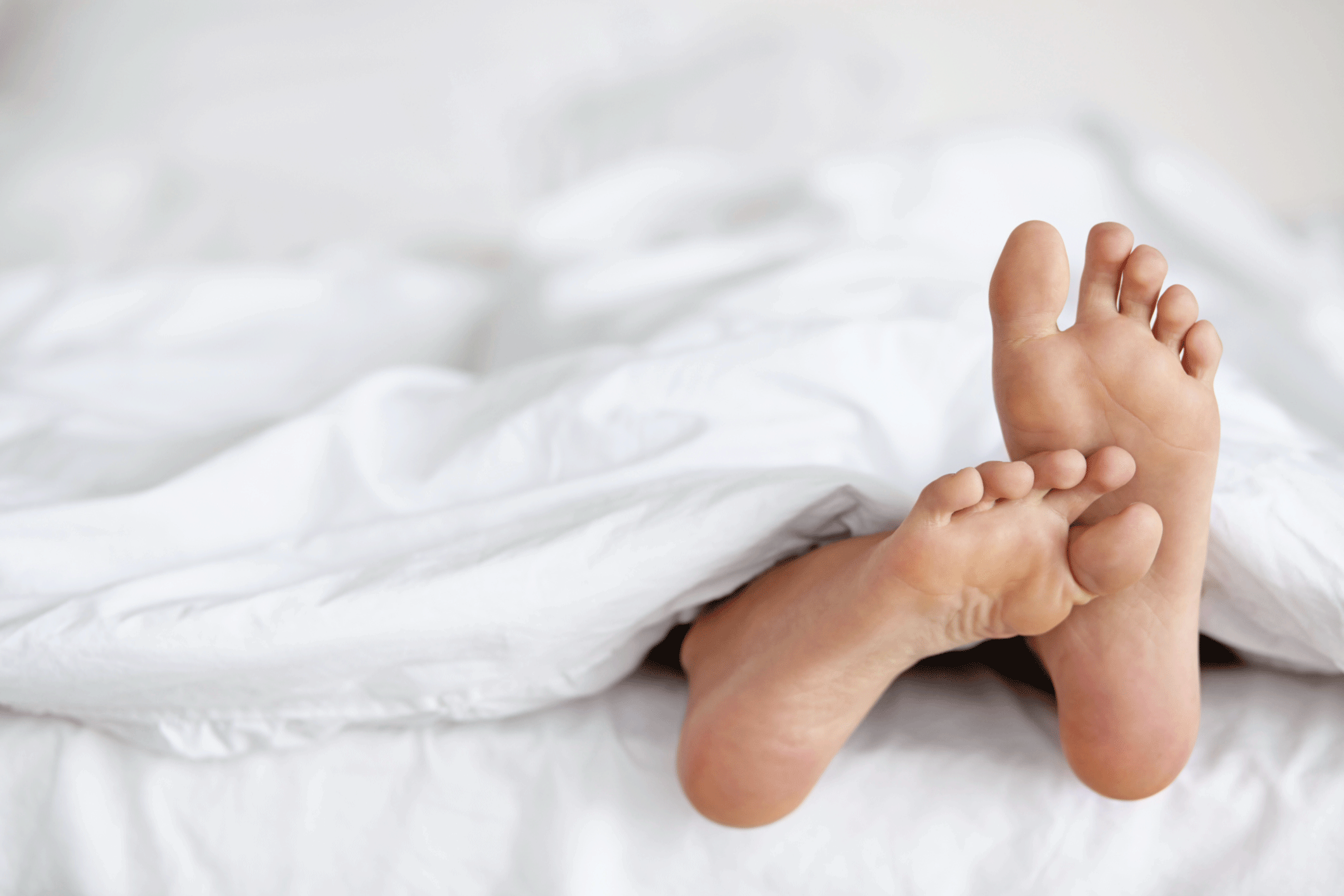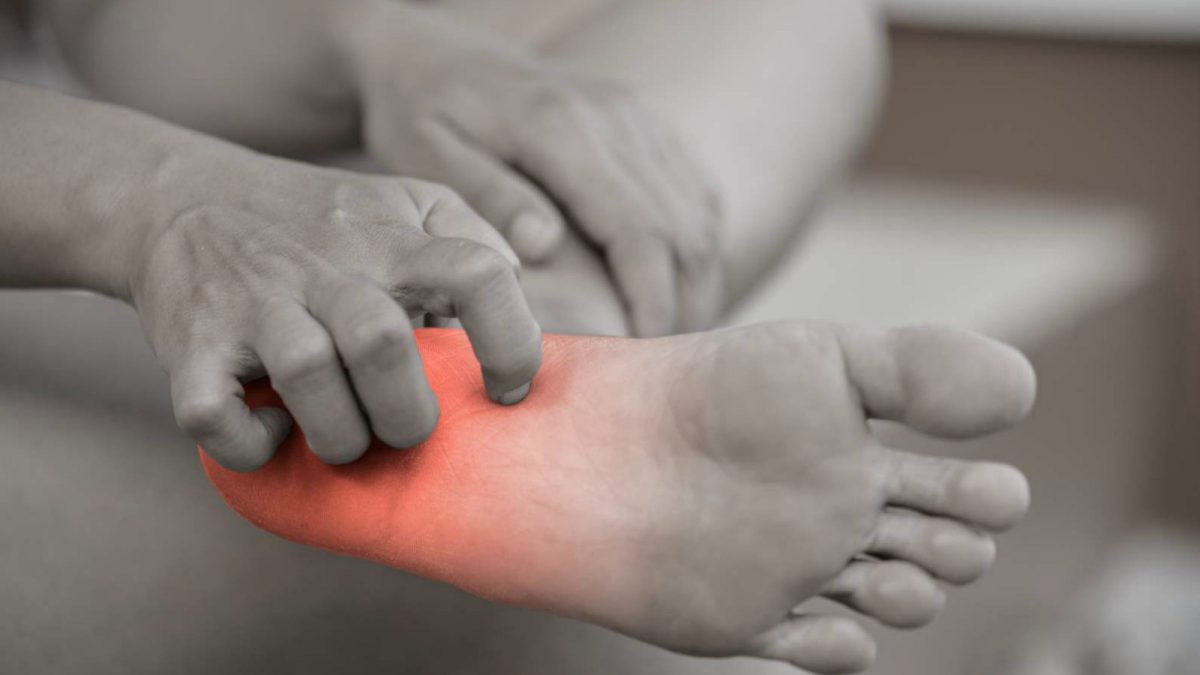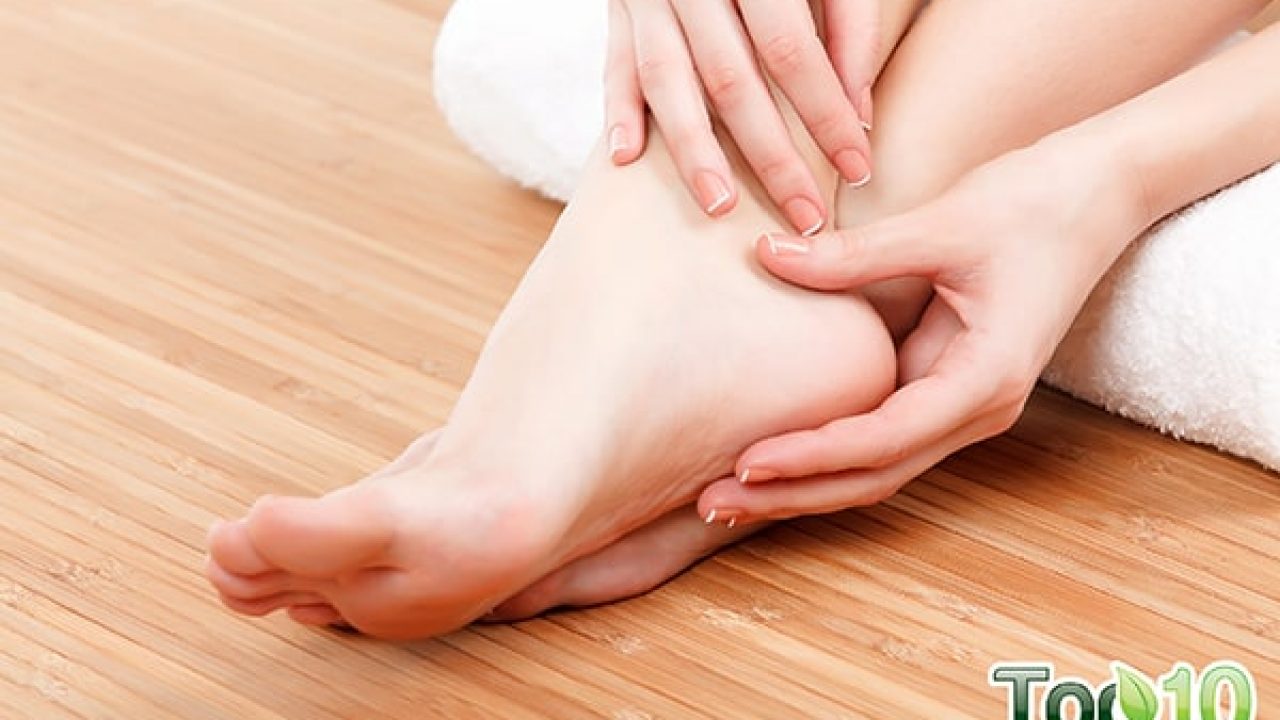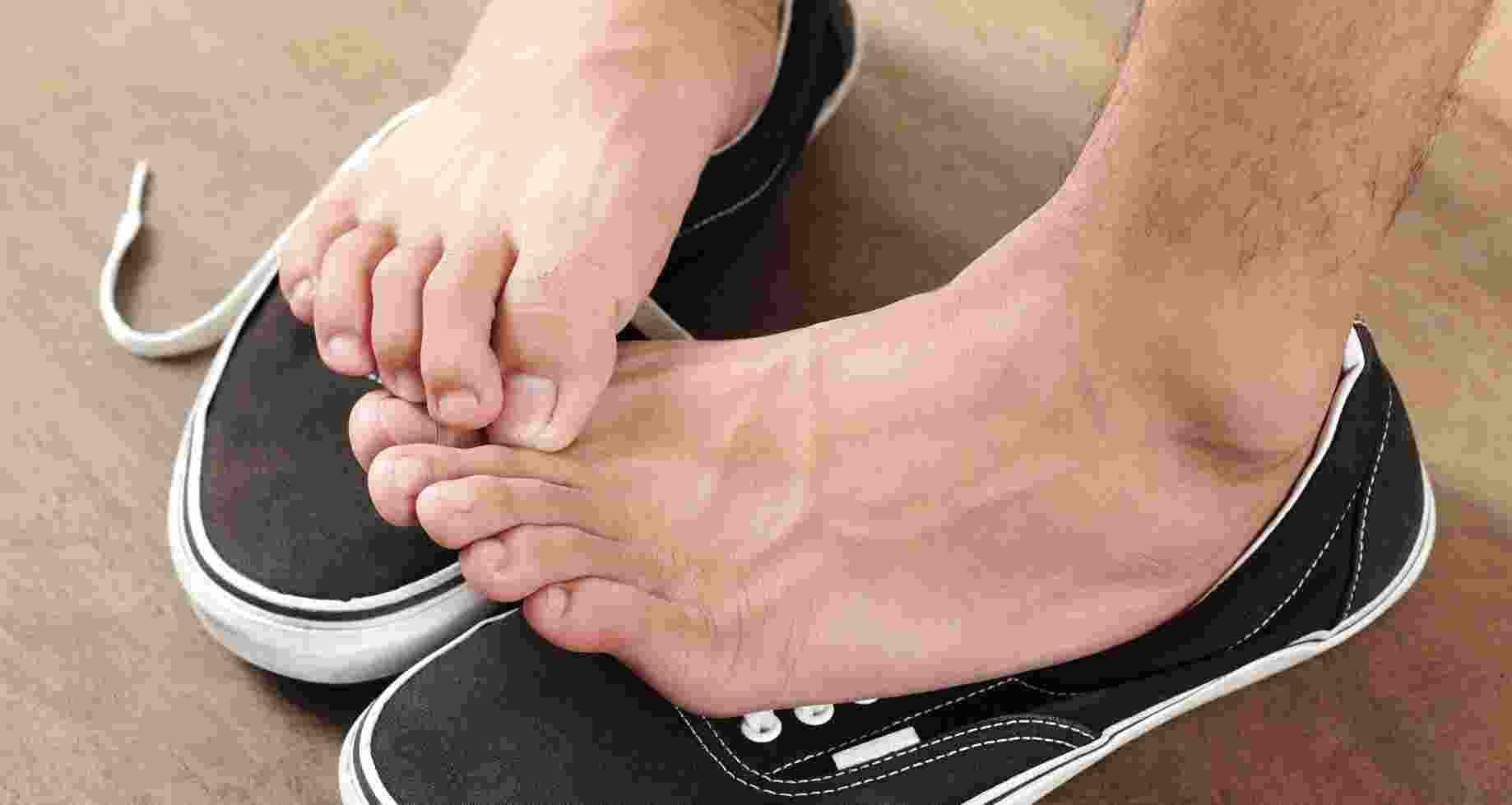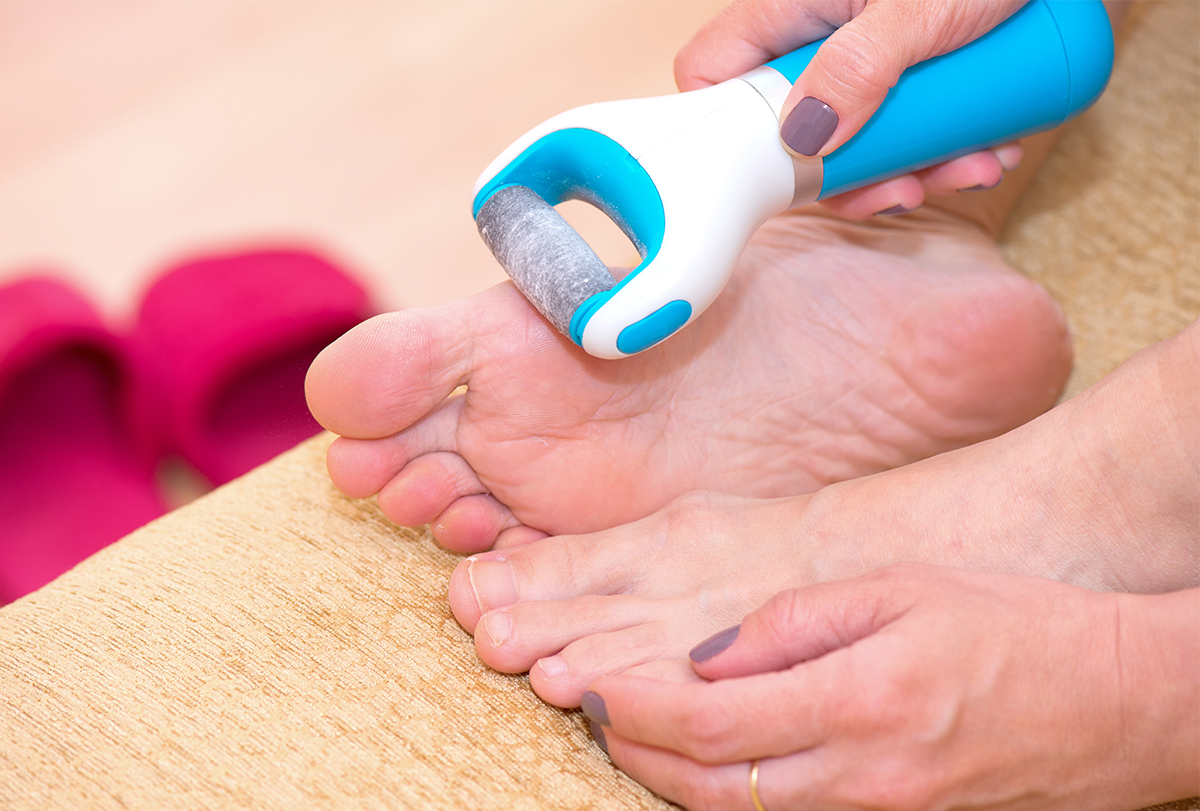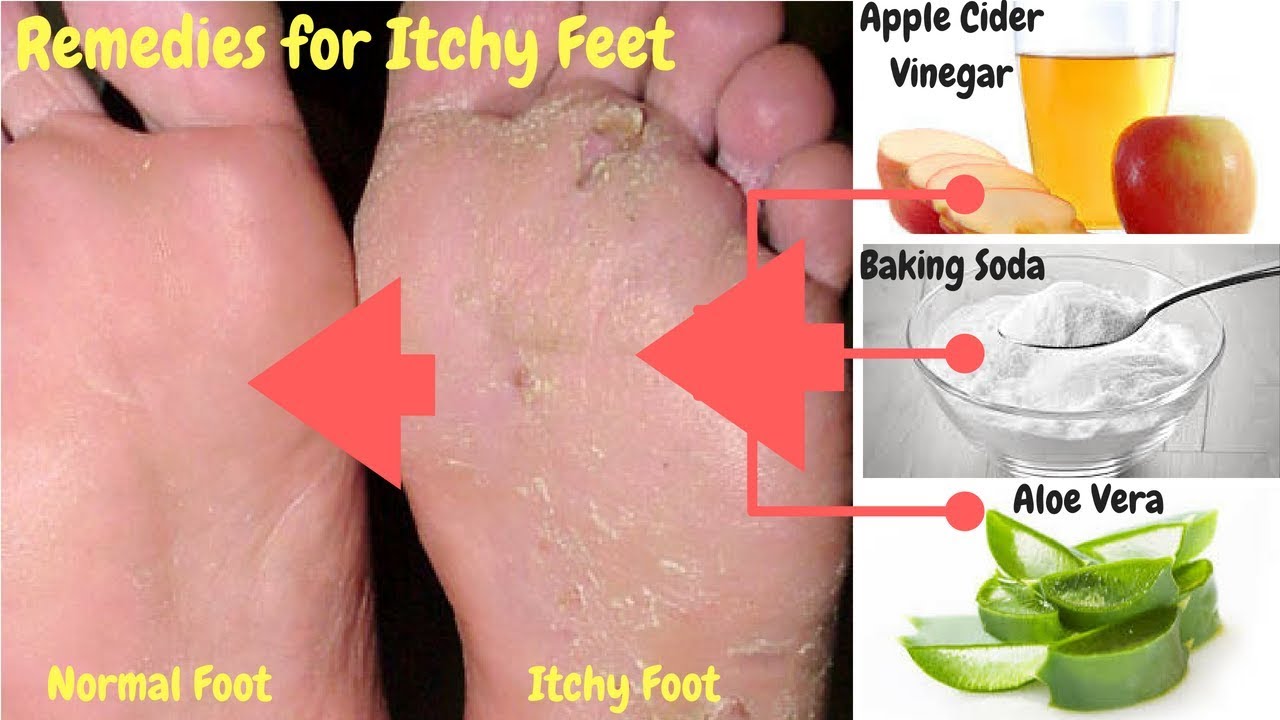A. What Causes Itchy Feet and How to Treat Them
We include products that we think will be useful for our readers. If you buy through links on this page, we can earn a small commission. Here is our process.
Pruritus is the medical term for itching caused by an irritating feeling in your skin that makes you want to scratch. This can occur anywhere on your skin.
Your feet are especially susceptible because they are often in sweaty situations with different types of shoes. Many situations can cause your feet to itch, including exposure to
- Humidity
- Dry environments that lead to dry skin
- Annoying when walking barefoot
- Infectious bacteria, viruses, parasites or fungi.
Although itchy feet are not usually a cause for concern, they may indicate an underlying skin condition or even a deeper internal disease. Understand which symptoms you should be concerned about and which ones should not help to get rid of your worries.
1. What causes itching feet?
Itching feet can come from several causes, including:
a. Diseases
Itching of the feet caused by a medical condition may be related to an increase in production of the neurotransmitter serotonin. For this reason, your doctor may prescribe a selective serotonin reuptake inhibitor (SSRI) to treat the itching.
Medical conditions that cause itching of the feet include
- Liver disease
- Cholestasis, which is reduced bile flow forward through the bile tree
- Cancer
- Peripheral neuropathy, a condition often associated with diabetes mellitus
- Polycythemia rubra vera
- Kidney disease
- Thyroid disease
- Pruritus gravidarum during pregnancy (may or may not have an accompanying cholestasis)
b. Skin Diseases
Skin diseases that cause itchy feet include:
- Allergic contact dermatitis, which can be caused by a new detergent,
- Athlete’s foot, or tinea pedis (fungal infection)
- Atopic dermatitis
- Juvenile plantar dermatosis
- Psoriasis
- Scars
- Insect bites
- Dry skin
- Pest infestation, such as lice or scabies
C. Exposure to irritants
An irritant can be any substance that causes a reaction in or on your body. It can even be medicines or ointments that are used to treat other conditions.
Medications known to cause itching in the body and feet include opiates or narcotics such as morphine sulfate, ACE inhibitors, and statins.
2. What are the symptoms and signs of itching in the feet?
Itching of the feet makes you want to scratch your skin. Changes in your skin may accompany the itching sensation. Examples of skin changes include:
- Bubbles
- Cracked, open areas
- Dry, flake coatings
- Itchiness
- Skin rash
- Redness
- Swelling
- White stains
It is also possible that your feet itch without any physical alteration of the skin surface.
3. When to consult a doctor
Consult your doctor if itching feet does not improve with home care or if your symptoms get worse over time.
Your doctor will give you a complete history and a physical examination to diagnose the causes of the itchy feet. Questions he may ask you include:
- Have you recently started taking any new medication?
- Have you been exposed to any potential irritants?
- Do you have any chronic illness such as diabetes mellitus or eczema?
- Have any family members, friends, or teammates had skin problems recently?
If necessary, your doctor may perform tests, including
- Skin scraping
- Culture
- Biopsy
- Blood tests
Some tests may check for the presence of germs in or on your skin, such as a fungus.
4. How are itchy feet treated?
Your doctor will treat the itchy feet, depending on the cause. If you have an allergic reaction, it may help to avoid the product or products that are causing the allergic reaction to reduce the itching.
Treatments that may relieve itchy feet include the following:
- An H1-blocking antihistamine such as diphenhydramine (Benadryl) can help relieve itching. Antihistamines can have sedatives and other unexpected side effects. Older adults may not want to use them.
- If you have athlete’s foot, sprays or antifungal creams can help. Chronic fungal infections may require antifungal treatment prescribed by a doctor.
- Topical anti-shrinkage medications, emollients such as petrolatum, and steroid creams can help reduce localized itching on the surface of the skin.
- In addition, prescribed medications such as SSRIs, gabapentin, or tricyclic antidepressants may be helpful in certain patients.
5. How can I prevent itching of the feet?
Good foot care habits can help reduce itching and prevent some causes, such as a fungal infection. These always include the use of waterproof shoes, such as flip-flops, in ordinary showers or on the floor of a gymnasium. You can also use these foot care measures:
- Refrain from putting on shoes and socks until the feet are completely dry
- Wash your feet regularly with mild soap, paying special attention to the spaces between your toes, and apply a moisturizer after bathing
- Wear cotton or wool stockings
- Wear shoes that are well ventilated, such as those with mesh holes that keep the feet dry
If you regularly suffer from athlete’s foot, you may have to apply an antifungal powder to your feet before putting on socks or shoes.
B. How to Make Your Feet Stop Itching at Night
If what keeps you awake at night are not the world’s problems, for a change, but irritating and itchy feet, there are solutions.
“There are some general assumptions that are probably not correct,” says Brian S. Kim, M.D., co-director of the Center for Pruritus Studies at the University of Washington School of Medicine. A classic is that people are less distracted at night and suddenly adapt to itching. “I don’t think it’s that simple,” says Dr. Kim.
It is not yet clear what the most complicated answer is, however, but a more recent theory suggests that the night itch may be the result of a change in daily rhythm later in the day, says Dr. Kim. At night, your anti-inflammatories are lower, which can regulate the sensitivity of the itch. “You can get a cleaner signal from an itch at night,” he says.
Evolutionary, this may have served us well. “I’m getting very speculative here, but if you don’t move at night, you may be more prone to mite infestations or even mosquito bites,” says Dr. Kim.
1. What are your feet itching?
Ask why people’s feet itch and dermatologists take a deep breath, as there may be a large number of drivers. Some easy, others less. Causes can be:
a. Athlete’s foot.
“When a patient comes in and complains of itchy feet, the dermatologist usually looks for redness, cracks, flakes or scales between the toes,” says Dr. Shawn Kwatra, Assistant Professor of Dermatology at Johns Hopkins Medicine. This usually indicates an athlete’s foot. Corrective measures include keeping your feet as dry as possible and using an over-the-counter antifungal.
b. Dry skin.
“As you get older, you can retain less water in the outer layer of your skin,” says Dr. Kwatra. Also, as you walk around all day, they can get thick and dry. All of this causes additional itchiness in the feet. Help prevent this by applying moisturizer to your feet at night as it comes in a bottle. “The cream is more moisturizing than the lotion”, emphasizes Dr. Kwatra. “The more sticky it is, the more moisturizing it is.”
c. Skin problems, including eczema and psoriasis.
They usually scratch the rest of the body and their feet are not exempt from feeling them.
d. Other medical problems.
Nerve damage caused by uncontrolled diabetes can cause itchy feet, as well as liver disease. Sometimes Dr. Kwatra: “The itch in the body can be a harbinger of the underlying disease.” Most of the time, the itching suggesting an underlying disease does not occur only in the feet. “Consider it in the context of the rest of your health,” he says. In other words, not every itchy foot is going to be a sign of a big problem like this, but if itchy feet are a persistent and long-standing problem for you, check it out, says Dr. Kwatra.
e. Systems we haven’t even discovered yet.
“The itchiness can be the result of several system failures,” says Dr. Kim. Itching can not only be a symptom, but there can also be many forms of itching. “Itching is almost an area of medicine itself,” he says. And, so to speak, only the surface has been scratched.
2. How to prevent itchy feet at night
The toolbox is very simple:
- Use a moisturizer. If your feet are particularly dry, use high-performance creams in these places.
- Consider a product with menthol. The cooling sensation you get with menthol can help to alleviate the itchy feeling, confusing the nerves that transmit the itchy signal.
- Manage your stress. There is likely to be an itch / stress cycle when things get really bad – the itch can cause a lot of anxiety and stress, and it is likely to increase the itch even more. Even at a more relaxed itch level, stress is also likely to play a role. “Many patients ask me,” Is that what my stress caused? “Says Dr. Kim.” My answer is I don’t believe it, but it is worse. “
c. Causes and treatments for itchy feet
Itchy feet can be bothersome, especially if the itch is chronic or accompanied by other symptoms. Many different conditions can cause itchy feet.
Although the occasional itch may not be a cause for concern, feet with extreme itching or an itch that does not improve over time may need treatment.
1. Peripheral neuropathy
According to the National Institute of Neurological Diseases and Strokes, peripheral neuropathy is a damage to the peripheral nervous system that extends throughout the body.
Nerve damage can cause sensations such as itching, numbness and pain in various parts of the body, including the feet.
2. Dry skin
Dry skin can sometimes cause itching. Risk factors for dry skin are:
- Was
- Lives in a dry climate
- Regular exposure to water, for example, due to frequent hand washing in the health and service sectors
- Swimming in chlorinated water
When a person has dry skin on their feet, it can cause itching. Applying creams, lotions or oils can help.
When regular moisturizers don’t work, the pharmacist can recommend effective over-the-counter (OTC) products.
3. Psoriasis
- Psoriasis is a skin disease that results in scaly, painful red skin. It can affect almost any part of the body, including the feet. Psoriasis can cause a lot of itching and pain.
- It occurs when a person’s immune system begins to attack healthy skin cells. This speeds up the production of these cells and creates a rash.
- Treatments usually include creams and lotions, which may contain tar, salicylic acid, corticosteroids or a combination of them.
4. Eczema
- Eczema, also known as atopic dermatitis, is a condition usually characterized by very dry and itchy skin. It can appear on various parts of the body, including the feet.
- According to the National Institute of Allergies and Infectious Diseases, it is unclear what causes eczema, although a combination of environmental and genetic factors appears to be involved.
- Dyshidrotic eczema is a common type on the sides and soles. It causes small, deep and extremely itchy blisters. Women are twice as likely to develop this form of eczema.
- People can treat the itchiness that results from mild dyshidrotic eczema by placing their feet in cold water or applying wet, cold compresses to the area.
If eczema is more severe, your doctor may prescribe creams or recommend OTC solutions.
5. Athlete’s foot
- Athlete’s foot is a fungal skin disease that usually develops between the toes, although it can also affect other parts of the foot.
- Athlete’s foot can cause itching and a burning sensation in the infected area.
- Mushrooms thrive in hot, humid and dark conditions, eg. B. in sports shoes. Overgrowth of these fungi can cause athlete’s foot.
Antifungal drugs, available in the form of pills or lotions, are generally very effective in treating athlete’s foot.
6. Allergic reactions
- Skin allergies can cause itching. They can be caused by certain skin conditions, such as eczema or psoriasis, or by contact with a substance like latex or pollen.
- Taking antihistamines can help relieve the symptoms of an allergic reaction. These drugs come in the form of pills or creams.
7. Hookworm infections
- Hookworm is a type of parasite that lives in the human intestine. Humans can catch hookworms walking barefoot in areas where the larvae are present. Hookworm infections are relatively rare in places with proper hygienic practices.
- According to the Centers for Disease Control and Prevention (CDC), you may experience itching where hookworm larvae have entered your body.
- Doctors can treat hookworm infections with antiparasitic drugs.
8. Scabies
- Scabies occurs when very small mites penetrate a person’s skin and lay eggs, resulting in a very itchy rash.
- The condition is contagious and occurs through skin-to-skin contact. It can appear anywhere on the body, including the feet.
- Applying a controlled medication directly to the skin can usually treat scabies.
9. Diabetes
- Diabetes is a long-term condition that affects insulin resistance and how the body converts food into energy. This can mean that a person’s blood sugar levels are too high, which can have serious health consequences.
- Diabetes can cause diabetic neuropathy, which can cause tingling, itching and numbness, especially in the feet.
- Poor blood circulation due to diabetes can also cause itching. Diabetes can also increase the risk of bacterial and fungal infections.
10. Burns
Even after healing, severe burns can cause permanent damage and itching.
According to a 2013 survey, more than 90 percent of respondents said they felt itchy after a burn. Itching persisted in more than 40 percent of participants.
11. Types of itching
The medical term for itching is itching. The causes can be divided into four categories:
- Skin, which is itchy resulting from a skin or skin problem
- Systemic, which is itchy due to a common problem throughout the body
- Neuropathic, which is an itchy sensation from the nerves or nervous system
- Psychogenic, which means that the itchiness is the result of a psychological problem
However, an article in Clinical Reviews in Allergy & Immunology notes that there is rarely a single cause for a person’s itching. Itching can result from a complex combination of factors.
12. Home Remedies
Tips for treating itchy skin at home include:
- Apply damp, cold towels or ice packs to the itchy area
- Make an oatmeal bath by grinding 1 cup of powdered oatmeal and adding it to the warm bath water
regularly using moisturizers - Try topical anesthetics that contain pramoxin
- Apply menthol or calamine to the affected area, which can cause a cooling sensation
The person should try to avoid scratches, which usually make the itch worse than it gets better. Scratches also increase the chances of infection.
13. Summary
Occasionally, itchy feet are common. However, if a person has chronic itchy feet or if the itching is accompanied by other symptoms, they should see a doctor for a thorough examination.
Many over-the-counter and home remedies can help relieve itchy feet. If the itching persists or gets worse, talk to a doctor.

